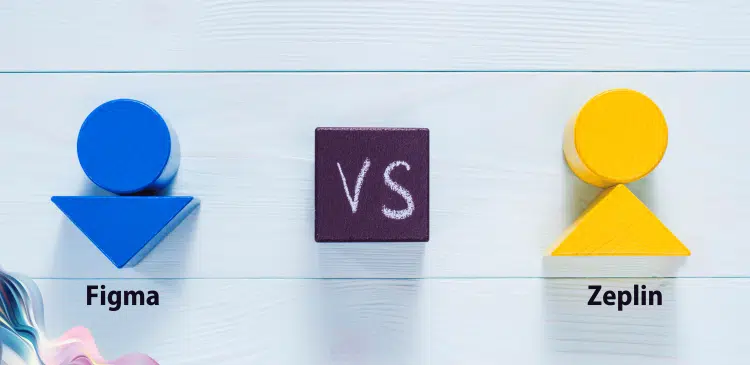Figma vs Zeplin

Figma and Zeplin are two widely used collaboration tools in the design process. Sharing is also possible so you and your team members can collaborate on designs, exchange assets, receive feedback, and ensure everyone is on the same page. However, there are slight differences in their methods of achieving goals.
So which is better for design collaboration: Figma or Zeplin? In this article, some factors that are compared include features, pricing, and usage. Continue reading to find out which of the two best suits your requirements.
Key Similarities
Before diving into the differences, let’s look at what Figma and Zeplin have in common:
– Social tools and applications for design collaboration in the cloud
– Provide a way to collaborate on designs with other teammates in real time
– Specifications for feedback and approval
– Revision history so you can see changes made on a file
– Ability to export and share design elements
– Provide some basic features free for the teams that have few members
Where They Differ
Let’s compare some of the critical differences between Figma and Zeplin:
Design Creation Capabilities
– Figma has more extensive functions linked to design creation, so you can simultaneously build designs directly in Figma.
– Zeplin, however, is a tool strictly concerned with collaboration. It’s a work in progress, and you must create designs for another program first.
Therefore, Figma removes the limitations of working between two different programs when designing. It works well, however, with Sketch, Adobe XD, and other tools used by UI designers.
Navigation and Handoff
– It is interesting to note that when multiple designs exist in a project, Figma enables page switching. In Zeplin, you can get to work with only one artboard at a given time.
– It is clear that Figma is right in its approach of having multiple pages to prototype a single design. But to developers, Zeplin has more specific and detailed specs to follow.
Thus, Figma is better for clickable prototypes and the initial stages of cooperation among the design team. But, Zeplin is at its best regarding developer handoff.
Pricing Models
– Figma has varying plans for using groups where the groups differ in the number of members. Zeplin charges per member.
– That way, for big teams, Figma is more cost effective. The Zeplin movement provides more options for small groups.
If we consider it for large enterprises, Figma is probably less costly than Sketch. In Zeplin, pricing is more flexible, allowing the smaller teams of varying membership levels to manage costs.
Integration and Plug-ins
– Figma also has a desktop app that makes it easier to use and has more offline features. Zeplin is web-based only.
– Figma is currently experiencing an upward trend in the availability of third-party plug-ins. Most extensions are developed by Zeplin.
Looking at the plug-ins, Figma has a desktop app, and more to it, the wide range of plug-ins is more diverse than Sketch’s plug-ins. However, in some ways, Zeplin is still able to integrate with all the vital collaboration platforms.
Use Cases
When to Choose Figma
Some teams that may be better served by Figma include:
– Larger enterprises – Better pricing is possible with Figma if we consider the ability to provide discounts at a large scale
– Teams that Sketch, wireframe, and model within the platform, where Figma is equipped with powerful design features
– Groups that must work offline – which, thanks to Figma, can now do so with the help of a particular desktop application
– Teams which use a lot of third-party plug-ins – considering Figma’s positioning as a part of a larger ecosystem
When Zeplin Works Best
On the other hand, Zeplin tends to work better for:
– Small and mid-sized teams – because Zeplin has a price per seat
– Organizations subordinating with outside agents – who arrive with their set of tools for designing
– Developer handoff –Zeplin does not offer many tools for prototyping, but instead concentrates on specifications
– Any teams that are currently using Sketch or Adobe XD – since the integration process is very smooth
Conclusion
Figma and Zeplin do not offer approaches that are precisely different from one another, but they tackle the issues involved in design collaboration in slightly different ways. Figma is a platform that allows creation and collaboration simultaneously, and Zeplin is more focused on providing a smooth workflow.
Some factors to take into consideration when selecting designs for your team include cost models, if you need designs to be created from scratch or handed over to you, integration requirements, and the existing design technologies. Choose the software that addresses your needs most closely and use extensions and integrations for the remaining provisions.
If you invest a little time into considering your primary needs and goals, you and your team will be able to decide whether Figma or Zeplin (or both) could become handy tools for improving the workflow between designers.



 Bill Yeager, Co-Owner of High Point SEO & Marketing in CT
Bill Yeager, Co-Owner of High Point SEO & Marketing in CT